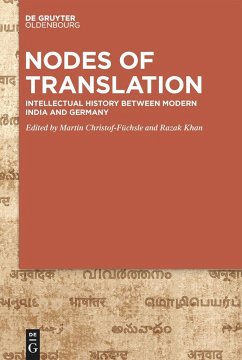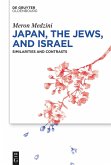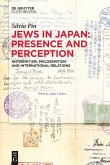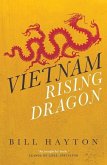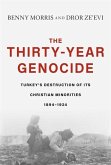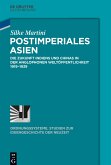The volume examines translation of key German texts into the modern Indian languages as well as translation from the vernacular languages of South Asia into German. Our key concerns are shifting historical contexts, concepts, and translation practices. Bringing an intellectual history dimension to translation studies, we explore the history of translation, translators, and sites of translation.
The organization of the volume follows some key questions. Which texts were being translated? At what point or period in time did this happen? What were the motivations behind these translations? Topics covered range from thematic nodes or clusters, e.g., translations of Economics texts and ideas into Urdu, or the translation of Marx and Engels into Marathi, to personal endeavours, such as the first Hindi translation of Goethe's Faust done by Bholanath Sharma in 1939. Missionary as well as Marxist activist translation work from Malayalam, Tamil and Telugu is included too. Onthe other hand, German translations of Tagore and Gandhi setting in shortly after 1912 are also examined. Also discussed are political strategies of publication of translations from modern Indian languages guiding the output of publishing houses in the GDR after 1949.
Further included are the translator's perspective and the contemporary translation and literary culture. What happens through the process of linguistic translation in the realm of cultural translation? What can a historical study of translation tell us about the history of Indo-German intellectual entanglements in the long twentieth century? The volume brings together multifaceted interdisciplinary research work from South Asian and German studies to answer some of these questions.
Hinweis: Dieser Artikel kann nur an eine deutsche Lieferadresse ausgeliefert werden.
The organization of the volume follows some key questions. Which texts were being translated? At what point or period in time did this happen? What were the motivations behind these translations? Topics covered range from thematic nodes or clusters, e.g., translations of Economics texts and ideas into Urdu, or the translation of Marx and Engels into Marathi, to personal endeavours, such as the first Hindi translation of Goethe's Faust done by Bholanath Sharma in 1939. Missionary as well as Marxist activist translation work from Malayalam, Tamil and Telugu is included too. Onthe other hand, German translations of Tagore and Gandhi setting in shortly after 1912 are also examined. Also discussed are political strategies of publication of translations from modern Indian languages guiding the output of publishing houses in the GDR after 1949.
Further included are the translator's perspective and the contemporary translation and literary culture. What happens through the process of linguistic translation in the realm of cultural translation? What can a historical study of translation tell us about the history of Indo-German intellectual entanglements in the long twentieth century? The volume brings together multifaceted interdisciplinary research work from South Asian and German studies to answer some of these questions.
Hinweis: Dieser Artikel kann nur an eine deutsche Lieferadresse ausgeliefert werden.
"This is not only one more publication on intellectual exchange between South Asia/India and Germany. This wonderful collection of scholarly contributions on translation is part of a trend that explores the cultural transformation of Indian thought into German and vice versa, without repeating existing research on intellectual history topics that are already well known through a number of publications from Indian and Western scholars. Nodes of Translation contains many insights into the politics of translation, and provides readers with an understanding of the setup, of cultural interaction accompanied and initiated by individuals inspired to learn the languages and literatures of the other, and beyond that, the role these languages and literatures played in the history of cultural understanding." - Heinz Werner Wessler (University of Uppsala, Sweden), in Nidan: International Journal for Indian Studies 9 (2024) 2, 85-88
***
"[...] the book positions itself within Foucault's (2013) framework of the "rejection of uniform temporalisation." With this overarching concept in mind, the entries in the volume seek to broaden the definition of archival sources, elucidate their limitations, and explore the role of archival research in advancing the boundaries of knowledge. In doing so, the book introduces the notion of hierarchy, which permeates the process of translation at the epistemic, cultural, and linguistic levels." - Syed Salman Abbas (Aligarh Muslim University, India), in Economic & Political Weekly LIX (December 28, 2024) 52, 34-36
***
"Nodes of Translation, edited by Martin Christof-FEURuchsle and Razak Khan, is a convincing attempt to 'initiate new conversations among historians, literary scholars and other inter-disciplinary scholars to bring translation studies in discussion with archival studies and the project of global intellectual history'. [...] This book will certainly inspire readers interested in intercultural German and Indian studies and enthusiasts of translation studies." - Jie Shen (Yangzhou University), in The Germanic Review: Literature, Culture, Theory 100 (2025) 1, 153-161
***
"[...] the book positions itself within Foucault's (2013) framework of the "rejection of uniform temporalisation." With this overarching concept in mind, the entries in the volume seek to broaden the definition of archival sources, elucidate their limitations, and explore the role of archival research in advancing the boundaries of knowledge. In doing so, the book introduces the notion of hierarchy, which permeates the process of translation at the epistemic, cultural, and linguistic levels." - Syed Salman Abbas (Aligarh Muslim University, India), in Economic & Political Weekly LIX (December 28, 2024) 52, 34-36
***
"Nodes of Translation, edited by Martin Christof-FEURuchsle and Razak Khan, is a convincing attempt to 'initiate new conversations among historians, literary scholars and other inter-disciplinary scholars to bring translation studies in discussion with archival studies and the project of global intellectual history'. [...] This book will certainly inspire readers interested in intercultural German and Indian studies and enthusiasts of translation studies." - Jie Shen (Yangzhou University), in The Germanic Review: Literature, Culture, Theory 100 (2025) 1, 153-161

